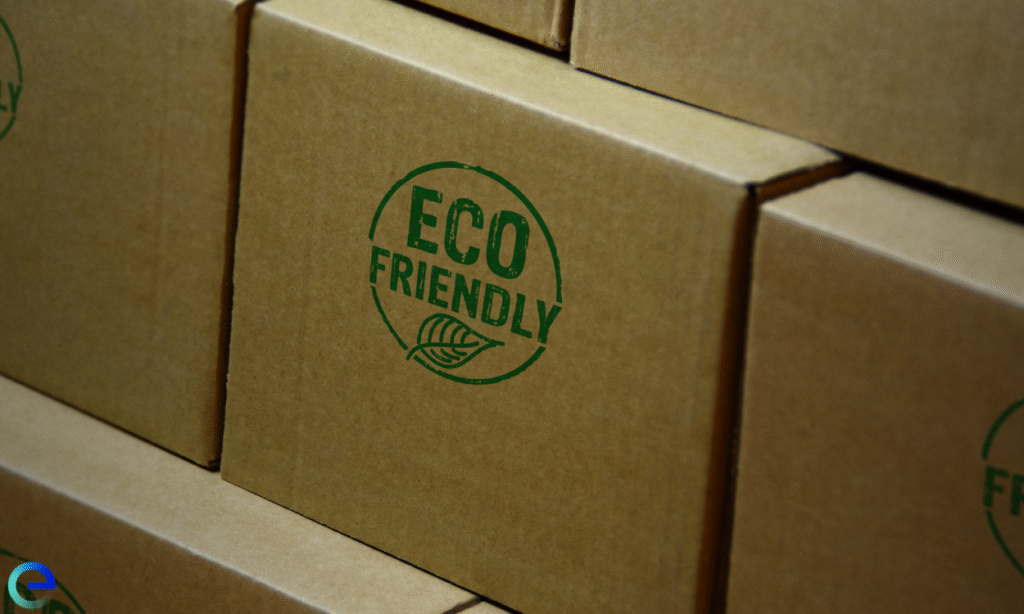
Greenwashing enforcement is becoming a serious risk for businesses worldwide as regulators crack down on misleading environmental claims. Green claims based on vague and unfounded information have been the norm for almost half of the companies globally, prompting authorities to take decisive action. The global report led by the International Consumer Protection and Enforcement Network (ICPEN) revealed that of the 500 websites it surveyed, 40% “appeared to be using tactics that could be considered misleading and therefore potentially break consumer law.” Practicing in deception doesn’t come without consequences, notably hefty financial ones.
German asset manager DWS received a €25 million fine for misleading statements about its ESG integration. On that note, regulations have been changing quite a lot across major markets. The European Union’s proposed Green Claims Directive aims to make environmental claims reliable, verifiable, and comparable, with potential penalties on the company’s annual turnover in relevant member states.
Similarly, the UK’s Competition and Markets Authority can now impose fines up to 10% of a company’s global turnover for misleading environmental claims. Additionally, Canada has introduced new greenwashing provisions to its Competition Act, while the FTC in the United States continues to use its Green Guides to tackle deceptive sustainability marketing. As climate accountability intensifies, companies must understand these evolving standards or face serious consequences.
Major corporations now face serious consequences as courts and regulators crack down on false environmental claims. Companies are now paying huge fines for what was once considered harmless marketing.
German asset manager DWS received a €25 million fine from Frankfurt prosecutors after investigators determined the company’s sustainability statements “did not correspond to reality”. The prosecution found that DWS falsely portrayed itself as an “ESG leader” while claiming that environmental and social governance was “an integral part of our DNA” between mid-2020 and January 2023.
Volkswagen and Keurig stand out as examples of substantial penalties for environmental marketing violations. Volkswagen ended up paying USD 34.69 billion across multiple countries after using software that falsified emissions data in its vehicles. Keurig had to pay USD 12.20 million to Canadian regulators because it misled consumers about its single-use coffee pods’ recyclability. Canadian law sets clear penalties under its Competition Act—first-time violators pay up to USD 10 million, with repeat offenders facing USD 15 million fines. Companies might also have to pay three times their deceptive conduct’s benefit or 3% of their annual worldwide revenue.
The Voluntary Carbon Market Disclosures Act (VCMDA) in California took effect in January 2024. According to the law, companies are required to back up their carbon-neutral or net-zero emissions claims with solid evidence. Companies doing business in California must now document how they verified their climate claims and measured progress. Breaking these rules comes at a steep price—up to USD 2,500 daily per violation, maxing out at USD 500,000. The law applies to any business in California making climate claims, whatever their size.
Industry experts call this wave of enforcement “the end of quiet punishments” for corporate greenwashing. Companies must now prove their sustainability claims with caution and complete transparency.
Regulatory bodies worldwide have created frameworks to identify and curb environmental misinformation using different approaches to detect greenwashing. While definitions vary between jurisdictions, regulators typically describe greenwashing as “false or misleading environmental claims to market products or services to environmentally conscious consumers.”
The EU’s Green Claims Directive stands as the most complete anti-greenwashing framework yet. Companies must validate environmental claims with recognized scientific evidence and current technical knowledge. Any green claim requires verification from an independent third-party conformity assessment body before publication. Violations of these provisions result in penalties that can reach up to 4% of annual turnover. Moreover, the directive establishes minimum requirements for environmental labels, mandating transparency in labeling schemes and prohibiting self-certification.
Canada put strict greenwashing provisions into its Competition Act in June 2024. The amendments focus on two types of environmental claims. Product-specific claims need “adequate and proper testing,” while business-level environmental claims require “adequate and proper substantiation in accordance with internationally recognized methodologies”. Recently, Canada’s Competition Bureau released new anti-greenwashing guidance clarifying how companies must substantiate environmental claims under the amended Competition Act. Companies that use green marketing for either their products or broader business goals, such as net-zero targets, must support these claims with credible evidence and testing, utilizing internationally recognized standards when applicable. In the case of non-compliance, steep penalties will be on the table, namely fines of up to 3% of global revenue or three times the benefit gained.
Regulators worldwide are intensifying their greenwashing enforcement, exposing businesses that make false sustainability claims to mounting penalties. When their environmental messaging falls short of reality, they put themselves against weighty financial, reputational, and legal risks.
The UK’s Digital Markets, Competition and Consumers Act stands out as one of the world’s toughest penalty systems. The Competition and Markets Authority (CMA) will have the power to levy fines up to 10% of a company’s worldwide annual turnover for misleading environmental claims starting in April 2025. These numbers could be massive for big corporations. The CMA’s new powers let them impose these penalties directly, without going to court.
Money isn’t the only thing at stake. Greenwashing undermines consumer trust and damages brand value. When discussing fast-moving consumer goods brands, only 1/5 of consumers believe their environmental claims. This skepticism has tangible business impacts, as more than half of consumers would switch brands after discovering evasive environmental claims. More studies now confirm greenwashing directly diminishes green brand equity, brand credibility, and reputation. Losing consumer trust leads to reduced sales, limited customer loyalty, and increased vulnerability to social media backlash, which can harm brand perception almost overnight.
Companies that succumb to dubious sustainability claims confront regulatory penalties while legal action also takes place. Recent years have witnessed a surge in “greenwashing” litigation, with cases targeting companies across sectors. A lawsuit in Seattle alleges that P&G’s Charmin toilet paper misled consumers by prominently using sustainability logos (like Forest Stewardship Council and Rainforest Alliance) while sourcing wood pulp from boreal forests through clear-cutting and burning. The suit claims that such behavior violates the FTC Green Guides and seeks injunctions, damages, and restitution. The litigation landscape now includes novel shareholder derivative suits alleging breaches of fiduciary duties related to sustainability claims.
Indeed, ESG-focused lawsuits represent creative legal approaches that exploit the gap between corporate environmental promises and practices. This expanding litigation risk creates yet another compelling reason for businesses to ensure environmental claims rest on verifiable evidence.
Businesses must now implement practical strategies to protect their sustainability communications as greenwashing enforcement becomes stricter. Companies face more profound scrutiny that goes beyond basic compliance. This demands fundamental changes in how they develop and share their environmental claims.
Life Cycle Assessment (LCA) provides a methodical foundation for sustainability assertions by evaluating environmental impacts throughout a product’s entire lifecycle—from raw material extraction to disposal. This scientific approach helps companies avoid accusations of selective disclosure, which affects 69% of negative sustainability events. LCAs offer multiple benefits: they build consumer trust, provide competitive advantage, ensure regulatory compliance, and guide sustainable innovation. The assessment follows ISO standards 14040 and 14044, measuring impact categories such as human toxicity, global warming potential, ecotoxicity, and acidification.

To prevent being related to greenwashing allegations, companies should remove ambiguous terminology such as “green,” “eco-friendly,” “good for the environment,” “carbon-neutral,” or “ecological” that are usually red flags for such claims. Specific descriptions of environmental attributes work better. A toy company could say their product “contains 80% recycled plastic” instead of calling it “environmentally friendly.”
Trust builds with transparency—the more transparent the brands, the more loyal the customers stay. Companies need to explain if their claims depend on direct emissions cuts, offsetting, or both. Recent regulations require businesses to share their operational boundaries, exclusions, timeframes, and measured scopes in carbon reports. Companies should also collect and publish documentation that supports their environmental claims.
Effective training programs for marketing and legal departments represent a crucial defense against greenwashing litigation. Programs should also address risky terminology, substantiation requirements, and how to evaluate scientific evidence supporting environmental assertions. The core team must also understand common greenwashing patterns to avoid within their company.
Companies worldwide face a defining moment in environmental accountability. Regulators of all sizes have made it clear: greenwashing won’t go unpunished anymore. These new rules reshape the scene of corporate environmental communication from simple marketing to strict compliance.
As legal requirements become more rigorous, companies must provide scientific evidence, get third-party verification, and keep detailed records of their environmental claims. The burden of proof has shifted decisively to businesses rather than regulators.
Businesses that adapt quickly, nevertheless, can turn this regulatory evolution into a competitive advantage. Thorough lifecycle assessments, precise terminology, transparent disclosure practices, and comprehensive staff training represent essential strategies for future-proofing sustainability communications.
Ultimately, this greenwashing enforcement wave serves a crucial purpose beyond penalties. Reliable environmental information enables consumers to make informed choices and directs capital toward genuinely sustainable initiatives. Although adapting to sustainable practices requires investment, companies that embrace authentic sustainability communication are likely to find that honesty yields the best long-term returns—both financially and environmentally.
